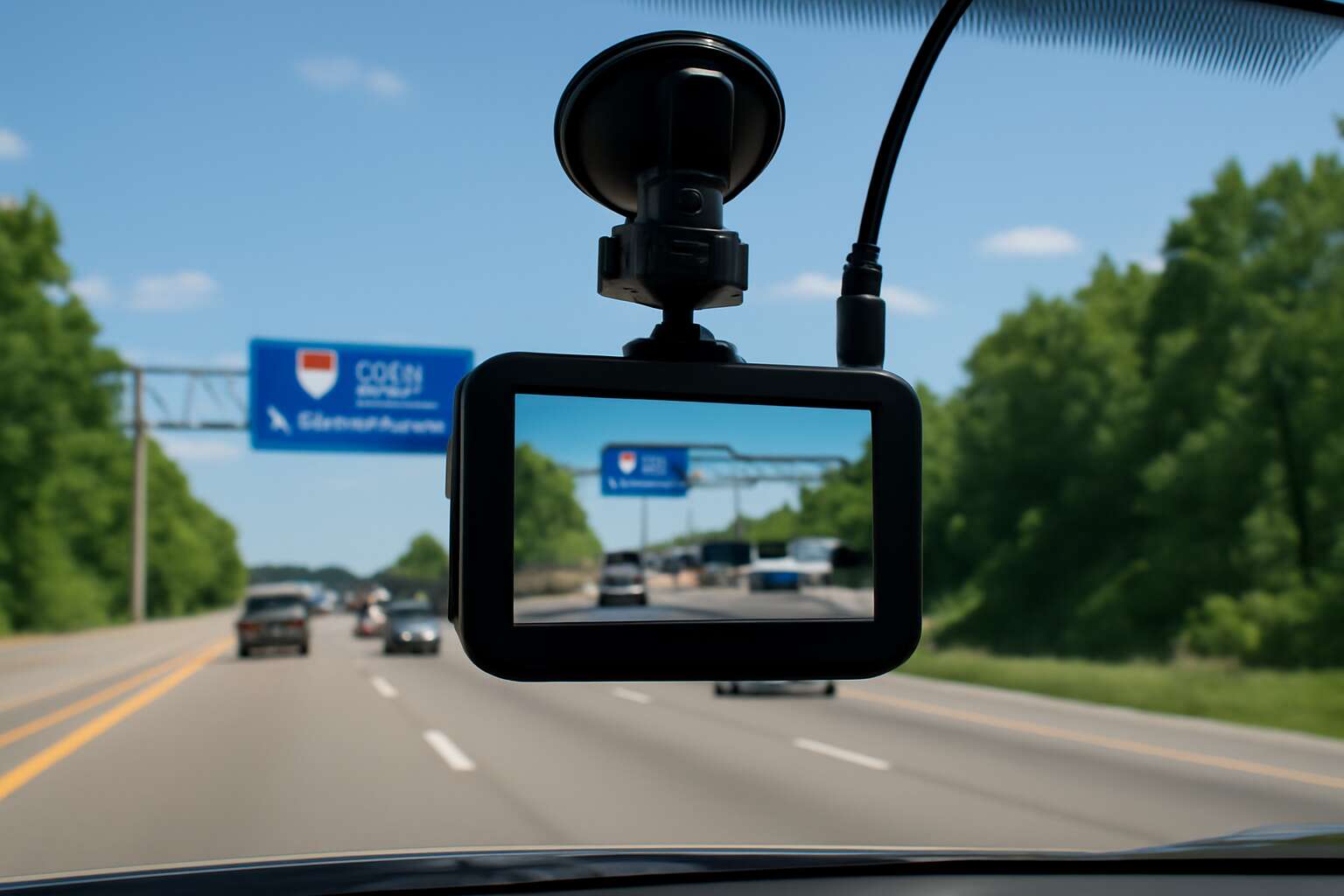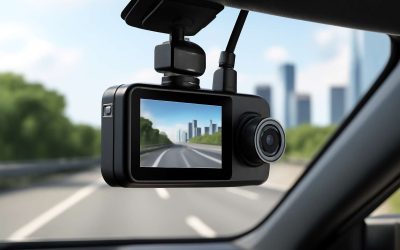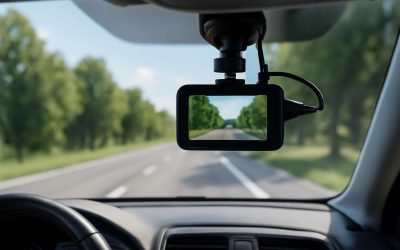Understanding Dash Cameras and Their Popularity in Michigan
What Are Dash Cameras?
Dash cameras have become a familiar sight on Michigan roads, capturing moments that can be both mundane and extraordinary. With the increase in their popularity, many drivers wonder, are dash cameras legal in Michigan? These small devices serve as vigilant witnesses, recording traffic incidents, road conditions, and even scenic drives through the Great Lakes State. Their growing presence reflects a desire for accountability and peace of mind, especially amid the unpredictable nature of rural life and urban hustle.
Understanding what dash cameras are is essential. Essentially, they are compact video recorders mounted on the vehicle’s dashboard or windshield, continuously capturing footage of the road ahead. Modern models often feature high-definition recording, night vision, and loop recording capabilities, ensuring that no detail goes unnoticed. In Michigan, their popularity is bolstered by the state’s diverse driving environments, from icy winter roads to scenic rural routes. As they become more common, clarity around the legal landscape—specifically, whether or not are dash cameras legal in Michigan—helps drivers use these devices responsibly and confidently.
Reasons for Using Dash Cameras in Michigan
In Michigan, the use of dash cameras has surged dramatically, reflecting a broader shift towards accountability and transparency on the roads. These devices are no longer just for tech enthusiasts; they’re becoming essential tools for everyday drivers seeking protection and peace of mind. With Michigan’s diverse driving conditions—from icy winter escapes to rural adventures—the appeal of having a reliable recording device is understandable.
People use dash cameras in Michigan for various reasons. Some want concrete evidence in case of accidents, while others simply enjoy capturing scenic drives through the Great Lakes State. Interestingly, many drivers wonder, are dash cameras legal in Michigan? The answer isn’t always straightforward, but understanding the legal landscape is crucial for responsible usage. Whether recording incidents or scenic routes, knowing the local laws ensures that drivers can make the most of their dash camera without risking legal complications.
Overview of Michigan’s Traffic Laws
Understanding the legal landscape surrounding dash cameras in Michigan is essential for any driver considering their use. These devices have gained popularity not only for capturing scenic drives but also for providing crucial evidence in the event of an accident. Michigan’s traffic laws are designed to balance driver safety with privacy concerns, which makes the legality of dash cameras a nuanced topic.
Michigan law generally permits the use of dash cameras, provided they do not interfere with the driver’s view or violate privacy rights. However, there are restrictions to be aware of, such as recording conversations without consent, which could breach wiretapping laws. To navigate this complex terrain, many drivers ask—are dash cameras legal in Michigan? The answer hinges on understanding specific regulations and ensuring responsible usage.
In this context, it’s helpful to consider Michigan’s stance on recording activities. For instance, Michigan is a one-party consent state for audio recordings, meaning only one person involved in a conversation needs to agree to recording. But when it comes to video recording on public roads, the legal boundaries are broader, often favouring transparency over privacy. This nuanced legal framework underscores the importance of staying informed—especially as the popularity of dash cameras continues to grow across the state.
Legal Considerations for Dash Cameras in Michigan
Michigan laws on video and audio recording
Michigan’s legal landscape surrounding dash cameras is more intricate than it might initially appear. While many drivers wonder, “are dash cameras legal in Michigan?”, the answer hinges on understanding specific state laws about video and audio recording. Michigan law permits the use of dash cameras, but with important caveats—especially regarding audio recordings. The state adheres to strict consent rules, meaning that recording audio without the explicit consent of all parties involved can lead to legal complications.
In Michigan, the core legal consideration revolves around the **two-party consent law** for audio recordings. This means that recording conversations without the knowledge of all participants may violate privacy rights and could be deemed illegal. To navigate this landscape, consider the following:
- Recording video footage from your vehicle is generally legal as long as it does not infringe on the privacy of others.
- Audio recordings require the consent of all parties involved, making it essential for drivers to be aware of this requirement when using dash cameras with audio capabilities.
Understanding these nuances ensures that drivers can utilise dash cameras effectively without risking legal repercussions. The question, “are dash cameras legal in Michigan?” often comes down to how and what is recorded, highlighting the importance of staying informed about local statutes to avoid inadvertent violations.
Is recording in a vehicle considered consent?
In the shadowy corridors of Michigan’s legal landscape, the question often echoes—are dash cameras legal in Michigan? The answer is not a simple yes or no but a delicate dance between technology and privacy rights. Recording video footage from your vehicle generally falls within legal bounds, provided it does not infringe upon the sanctity of others’ privacy. Yet, the waters become murkier when audio recordings enter the scene.
Michigan’s two-party consent law casts a dark cloud over the act of recording conversations. It stipulates that all parties involved must be aware and give explicit consent before any audio is captured. Failure to adhere to this rule can turn your dash camera from a guardian into a legal adversary. To navigate this terrain, consider this:
- Recording video alone is typically permitted, especially when it captures public spaces and does not intrude on private moments.
- Audio recordings demand the consent of everyone involved, making it crucial to disable audio features if unsure about compliance.
This nuanced understanding is vital for drivers. It’s one thing to safeguard your journey with a dash camera; it’s another to unwittingly invite legal peril. The question of whether dash cameras are legal in Michigan hinges on these subtle distinctions, reminding us that in the realm of surveillance, knowledge is the only true shield against the darkness of legal repercussions.
Privacy concerns and dash camera recordings
In Michigan, the legal labyrinth surrounding dash cameras isn’t exactly straightforward—think of it as navigating a maze with a GPS that occasionally forgets its way. While recording video footage in your vehicle is generally permitted, privacy concerns cast a long shadow over audio recordings. Michigan’s strict two-party consent law means you must secure everyone’s nod before capturing any sound, turning your dash cam into a potential legal liability if you’re not careful.
To stay on the right side of the law, consider these crucial points:
- Disabling audio features when recording in private spaces or situations where consent isn’t explicitly granted.
- Focusing on video recording that captures public spaces or your vehicle’s surroundings without infringing on private moments.
- Understanding that audio recordings without consent can lead to legal repercussions, as Michigan views such acts as violations of privacy rights.
Ultimately, the question of are dash cameras legal in Michigan hinges on respecting privacy boundaries while harnessing technology’s protective powers. Keep these considerations in mind, and your dash cam will serve as a guardian, not a legal saboteur, in your Michigan travels.
Michigan Specific Regulations and Restrictions
Mounting and visibility requirements for dash cameras
In Michigan, the question of whether dash cameras are legal in Michigan is often met with curiosity, especially given the state’s unique traffic landscape. One vital aspect of legality revolves around specific regulations and restrictions on how these devices are mounted and their visibility. Authorities emphasise that dash cameras must not obstruct the driver’s view, as safety always takes precedence. A clear line exists between capturing footage for protection and creating a hazard on the road.
To ensure compliance, motorists should adhere to Michigan’s mounting regulations, which typically include avoiding placement in areas that could impair vision or distract the driver. For example, dash cameras should be positioned behind the rearview mirror, maintaining an unobstructed view of the road.
- Mount below the top edge of the windshield
- Avoid blocking the line of sight to essential instruments
Additionally, visibility requirements dictate that the camera’s placement must not interfere with airbags or other safety features, ensuring that legal use aligns seamlessly with safety protocols.
Restrictions on recording audio without consent
When pondering the question, “are dash cameras legal in Michigan?”, it’s essential to navigate the state’s specific regulations—because what’s legal in one place can be a ticket waiting to happen elsewhere. Michigan’s laws on video and audio recording are clear enough: while dash cameras are generally permitted, there’s a catch—audio recording without consent can land you in hot water. Michigan is a one-party consent state, meaning you can record if you’re involved in the conversation, but secretly recording others without their knowledge? That’s a no-go.
To keep things above board, motorists should remember that any audio recorded must be consensual. Violating this rule risks hefty fines or even criminal charges, which makes those dash cameras a little less friendly. A quick tip: if you’re planning to record audio, ensure you clearly inform everyone in the vehicle. Otherwise, you might find yourself on the wrong side of Michigan’s privacy laws—definitely not the way to keep your dash camera footage admissible in court!
Legal implications of recording police interactions
In the intricate dance of legality and technology, Michigan’s stance on dash cameras reveals a delicate balance. The state’s laws carve out a clear distinction: video recording in vehicles is generally permitted, yet the act of capturing audio weaves a more complex tapestry of legal nuance. Michigan, adhering to one-party consent, permits recording conversations if the recorder is involved—yet, secretly eavesdropping on others remains a perilous pursuit.
When it comes to recording police interactions, the stakes are even higher. The law’s architecture does not explicitly ban recording law enforcement officers in public, but it mandates that such recordings do not infringe upon reasonable expectations of privacy. The potential for legal entanglement looms if recordings are used maliciously or if they violate privacy laws.
To navigate these murky waters, some suggest a simple yet profound rule: transparency. Informing officers or passengers about recording ensures compliance and preserves the integrity of the footage. After all, in the realm of legalities, clarity often trumps ambiguity, especially when the question remains — are dash cameras legal in Michigan?
Case Laws and Legal Precedents in Michigan
Notable court cases involving dash recordings
Legal precedents in Michigan shed illuminating light on the use of dash cameras, revealing a nuanced landscape that balances individual rights with public safety. In one notable court case, the Michigan Court of Appeals examined the admissibility of dash camera footage as evidence in a traffic violation dispute. The court’s decision underscored that recordings captured within the vehicle could serve as credible evidence, provided they comply with established privacy laws and mounting regulations.
Another landmark ruling involved the legality of recording police interactions. The court reaffirmed that drivers have the right to record police officers in public spaces, as long as they do not interfere with law enforcement duties. This case set a significant precedent, affirming that dash cameras are not inherently unlawful but must be used within the boundaries of Michigan’s legal framework. Such case laws demonstrate that, when employed correctly, dash cameras can be powerful tools—yet questions about legality remain a subject of ongoing legal scrutiny.
Legal outcomes related to dash camera footage
Legal precedents in Michigan illuminate a complex landscape where technology intersects with rights and responsibilities. In a pivotal case, the Michigan Court of Appeals confirmed that dash camera footage can serve as credible evidence in traffic disputes, provided it adheres to privacy and mounting regulations. This ruling underscores a broader recognition of dash cameras as valuable tools for transparency and accountability.
Equally significant was the court’s affirmation that recording police interactions is lawful when conducted in public spaces, as long as it does not impede law enforcement duties. This case, along with others, reveals that the legality of dash cameras hinges on nuanced legal boundaries. As the use of dash cameras becomes more widespread, understanding these legal outcomes is essential for drivers questioning, are dash cameras legal in Michigan?
Best Practices for Legally Using Dash Cameras in Michigan
Proper mounting and installation tips
In the wild west of Michigan roads, where the legal landscape can be as twisty as a county fair maze, knowing how to properly mount your dash camera is crucial. Proper installation isn’t just about avoiding a ticket; it’s about safeguarding your evidence and peace of mind. Ensuring your dash camera is securely affixed and does not obstruct your view is paramount. Remember, the goal is to keep your footage as clear as a summer lake—nothing blurry, no reflections, no distractions.
To stay within the bounds of legality, it’s wise to follow some best practices for mounting your dash camera. For example, position it behind the rearview mirror, avoiding the driver’s line of sight. This placement helps keep your dashboard camera unobtrusive yet functional. When installing, consider a sturdy suction mount or a dash pad that won’t wobble or fall off during Michigan’s unpredictable weather.
- Ensure the camera is angled to capture the road ahead clearly.
- Keep wires tidy and out of the way to prevent distractions or accidental disconnections.
- Double-check that the camera’s field of view doesn’t encroach on safety features or blind spots.
Getting these details right isn’t just about legality—it’s about turning your vehicle into a mobile courtroom where you’re the star witness. So, the next time someone asks, “Are dash cameras legal in Michigan?” you can confidently say yes—if you follow these best practices for proper mounting and installation. Just remember, a well-placed dash camera is your trusty sidekick, not a rogue element risking legal trouble.
Guidelines for audio recording
When it comes to harnessing the power of dash cameras in Michigan, understanding the nuances of audio recording laws is essential. While the visual footage is generally straightforward in terms of legality, audio recording introduces a layer of complexity rooted in privacy rights and consent. Michigan law, like many states, operates under the principle that recording conversations without consent can breach privacy expectations, especially if the audio captures private or sensitive communications.
To stay within the boundaries of legality, it’s advisable to be transparent about audio recording. For instance, consider a simple policy: inform passengers or other drivers you are recording audio. Michigan’s laws tend to favour mutual consent—meaning, if one party is aware of the recording, it’s typically lawful. However, recording audio secretly can lead to legal repercussions, especially if used as evidence in disputes.
For those pondering whether they can combine video and audio in their dash cameras, it’s wise to follow a straightforward rule: when recording audio, ensure that all parties involved are aware of and consent to the recording. This approach not only aligns with Michigan’s legal standards but also fosters trust and transparency. After all, a dash camera’s true value lies in its ability to protect and provide clarity—without crossing legal or ethical boundaries.
In a state where the roads can be as unpredictable as the weather, knowing that your dash camera use—particularly audio—complies with Michigan law is a reassuring step. Remember, legality isn’t just about avoiding trouble; it’s about respecting privacy and ensuring your evidence is admissible in court if needed. Whether you’re capturing a minor fender-bender or documenting a police interaction, understanding these guidelines is key to making the most of your dash camera without legal complications.
Storing and sharing dash camera footage legally
Storing and sharing dash camera footage in Michigan demands a nuanced understanding of legal boundaries and ethical considerations. When handling sensitive recordings, it’s imperative to ensure that your actions align with state laws, especially since improper sharing can lead to legal complications. To safeguard yourself, consider implementing a clear protocol:
- Always delete footage containing private information if not needed for legal purposes.
- Limit sharing footage to trusted parties or authorities, and only when necessary.
- Keep detailed records of when and why you share recordings, maintaining transparency and accountability.
In Michigan, the legal landscape surrounding dash camera footage is complex, with courts scrutinising both privacy rights and evidentiary value. By adhering to these best practices, you can navigate the delicate balance of protecting your rights while respecting others’ privacy. Remember, responsible management of dash camera footage is essential in demonstrating your commitment to lawful and ethical use—especially when questions about are dash cameras legal in Michigan arise.
Conclusion
In the grand theatre of Michigan’s roadways, where every driver plays a role, the question of whether dash cameras are legal in Michigan remains a captivating subplot. With the rise of evidence from these discreet devices, many ponder if their installation is a legal gamble or a savvy safeguard. The truth? Dash cameras are generally legal, provided they respect privacy boundaries and do not interfere with vehicle operation.
Michigan law does not explicitly prohibit dash cameras, yet it’s crucial to remember that recording audio or video in certain contexts might tread into murky legal waters. For instance, recording conversations without consent could violate state wiretapping laws, adding a layer of complexity to the legality of dash cameras. So, while the device itself isn’t outlawed, responsible usage remains paramount.
Ultimately, whether you’re a cautious commuter or a vigilant chauffeur, understanding the nuances of the law ensures your dash camera remains a trusted co-pilot rather than a legal adversary. After all, knowledge of the legal landscape turns a simple recording device into a powerful ally on Michigan’s winding roads.




0 Comments